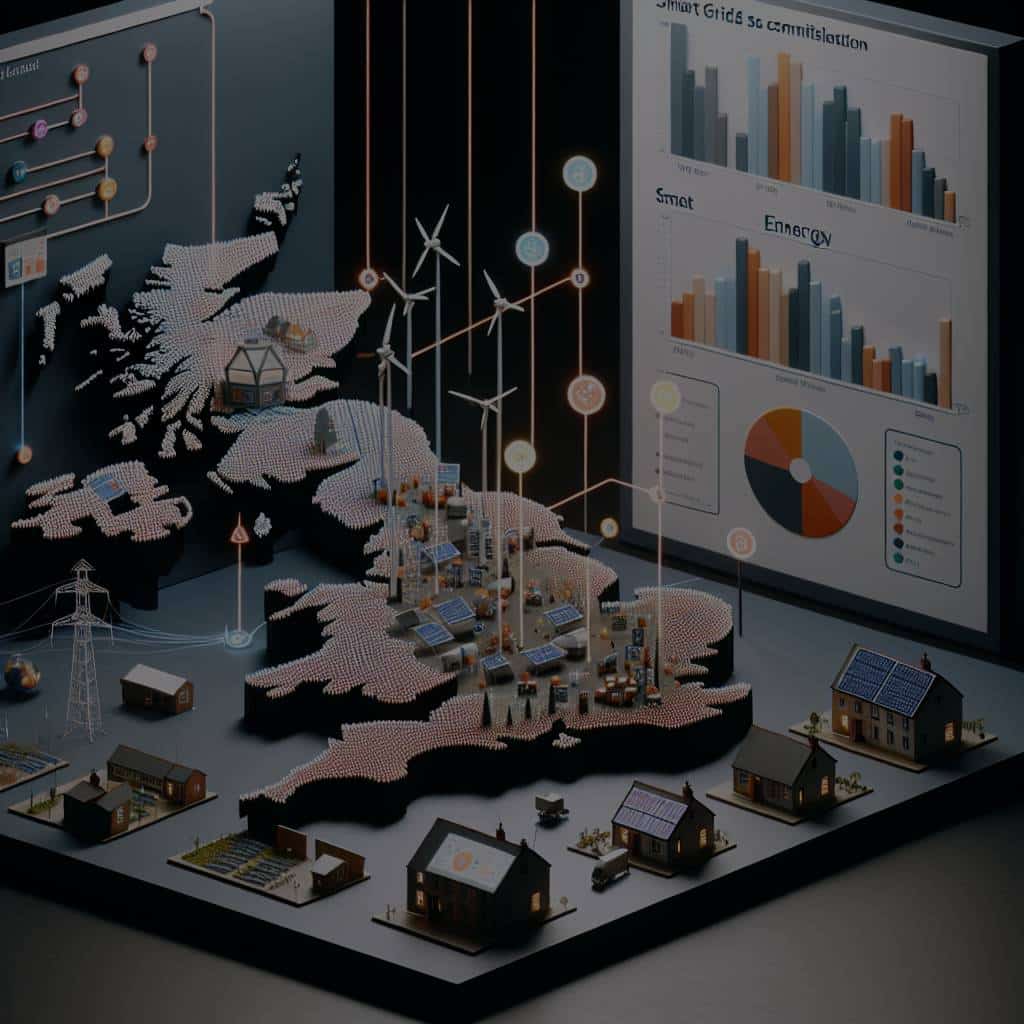In the UK’s quest for a sustainable and efficient energy system, smart grids have emerged as a leading solution. These modernised versions of traditional power grids harness advanced technologies to optimise the production, distribution, and consumption of electricity. Let’s delve into how these systems can transform the UK’s energy landscape.
What are Smart Grids?
Before we discuss the efficiencies of smart grids, it’s critical to understand what they are. A smart grid is an electricity distribution network, enhanced with digital technology to monitor and manage the production and consumption of energy. They are designed to meet the increasing demand for energy, facilitate the integration of renewable power sources, and improve the reliability and sustainability of the electricity system.
Have you seen this : Shed pounds fast: 9 top weight loss pills & fat burners
Smart grids use smart meters and other devices to collect real-time data about power usage and grid conditions. This information is then used to optimise energy distribution, reduce waste, and manage demand. Unlike traditional power grids that are passive and one-directional, smart grids are dynamic and interact with both energy providers and consumers.
The Role of Smart Grids in Energy Efficiency
Smart grids are at the forefront of creating a more efficient energy system in the UK. Their ability to gather and utilise real-time data allows for a more precise management of energy production and consumption, significantly reducing waste.
Also read : How to Prepare for a Career in the Growing Field of Space Tourism?
One of the key ways smart grids promote efficiency is through demand response programs. These initiatives encourage consumers to reduce their energy usage during peak demand times. By offering incentives such as lower energy rates for off-peak usage, smart grids help to balance the demand and supply of electricity and reduce the strain on the power grid.
Furthermore, smart grids enable the integration of more renewable energy sources into the grid. Renewable energy is unpredictable and variable in nature. For instance, the amount of solar power generated depends on the intensity and duration of sunlight. Smart grids use real-time data to predict these variations and adjust the energy supply accordingly, ensuring that energy from renewable sources is utilised to its full potential and waste is minimised.
The Future of Smart Grids
The future of smart grids in the UK is promising. With the government’s commitment to net-zero carbon emissions by 2050, smart grids will play a pivotal role in achieving this target. By facilitating the integration of more renewable energy sources and managing the demand and supply of electricity more efficiently, smart grids have the potential to significantly reduce the UK’s carbon footprint.
Moreover, smart grids can make the energy system more resilient. By detecting and responding to faults in real-time, smart grids can prevent power outages and improve the reliability of the power supply. They can also protect the grid from cyber-attacks and natural disasters, ensuring that the energy system remains robust in the face of challenges.
Technological Innovations Boosting Smart Grids
Technology is the driving force behind smart grids. Innovations such as smart meters, energy storage systems, and advanced data analytics are transforming the way electricity is produced, distributed, and consumed.
Smart meters, for instance, provide real-time information about energy usage to both consumers and energy providers. This facilitates more informed decision-making about energy consumption, enabling consumers to reduce their energy bills and carbon footprint.
Energy storage systems, particularly batteries, play a crucial role in managing the intermittent nature of renewable energy. They store excess energy produced during periods of high renewable generation and release it when the renewable energy supply is low.
Advanced data analytics is another key technology that powers smart grids. It helps in analysing the massive amounts of data generated by smart meters and other devices, providing insights that can be used to optimise the energy system.
The Challenges of Implementing Smart Grids
While smart grids hold immense potential, their implementation is not without challenges. One of the main hurdles is the high upfront cost of installing smart grid infrastructure. This includes the costs of smart meters, communication networks, and other technology needed to modernise the power grid.
Consumer acceptance is another challenge. The success of smart grids relies heavily on consumers actively participating in demand response programs and adjusting their energy consumption based on real-time data. However, concerns about data privacy and a lack of understanding about how smart grids work can hinder consumer engagement.
Despite these challenges, the potential benefits of smart grids in making the UK’s energy system more efficient, sustainable, and resilient are considerable. With continued investment in technology and efforts to engage consumers, smart grids can transform the UK’s energy future.
The Impact of Smart Grids on Local Energy Communities
The advent of smart grids has also given rise to local energy communities. These are groups of households, businesses, and public entities that generate, consume, and share energy within a local area. A smart grid facilitates the operation of these communities by allowing them to monitor and manage their energy usage in an efficient and sustainable manner.
At the heart of a local energy community is the concept of peer-to-peer energy trading. This involves the direct exchange of energy between producers and consumers within the community, bypassing traditional energy retailers. Smart grids enable this exchange by providing a platform for real-time tracking of energy production and consumption. This way, surplus energy from a solar-powered home, for instance, can be directly sold to a neighbor in need, creating a more efficient and resilient local energy system.
Furthermore, smart grids allow local energy communities to participate in demand response programs. During peak demand periods, these communities can collectively reduce their energy consumption or supply excess energy to the grid, helping to balance the supply-demand equation and prevent power outages.
Energy storage systems, particularly batteries, also play a crucial role in local energy communities. They can store excess energy produced by renewable sources for later use, reducing reliance on the grid and ensuring a continuous supply of energy.
Overall, smart grids empower local energy communities to take control of their energy future, fostering a more decentralised, democratic, and sustainable energy system in the UK.
Conclusion: A Smart Energy Future for the UK
In conclusion, smart grids are reshaping the UK’s energy landscape by making the energy system more efficient, sustainable, and resilient. They bring a new level of intelligence and interactivity to the energy sector, enabling real-time monitoring and management of energy production, distribution, and consumption.
Their ability to integrate more renewable energy sources and facilitate demand response programs is key to achieving the UK’s net-zero carbon emissions target. At the same time, the rise of local energy communities, empowered by smart grids, is democratising the energy sector and fostering a more decentralised and sustainable energy system.
However, the journey to a smart energy future is not without challenges. High upfront costs and consumer acceptance are some of the key hurdles that need to be overcome. But with continued investment in technology and efforts to engage and educate consumers, these challenges can be turned into opportunities.
As smart grid technologies continue to evolve, they hold the promise of transforming the UK’s energy system into one that is not just more efficient and sustainable, but also more resilient and inclusive. The potential of smart grids is vast, and their growing adoption is a testament to the UK’s commitment towards a smarter, cleaner, and more sustainable energy future.











